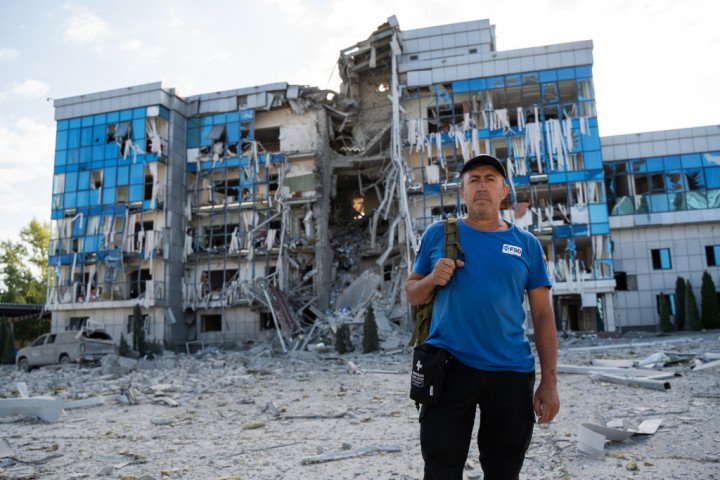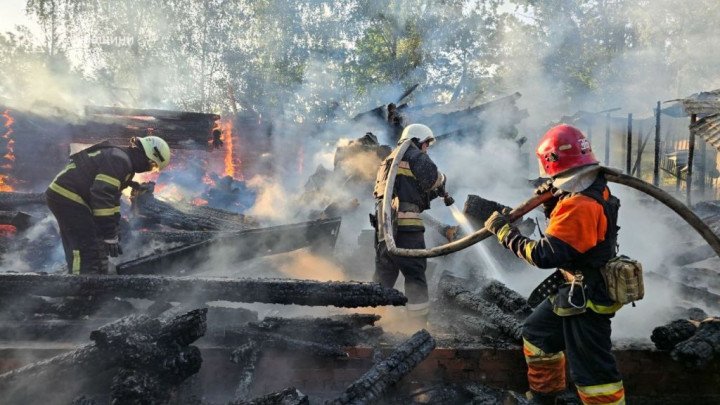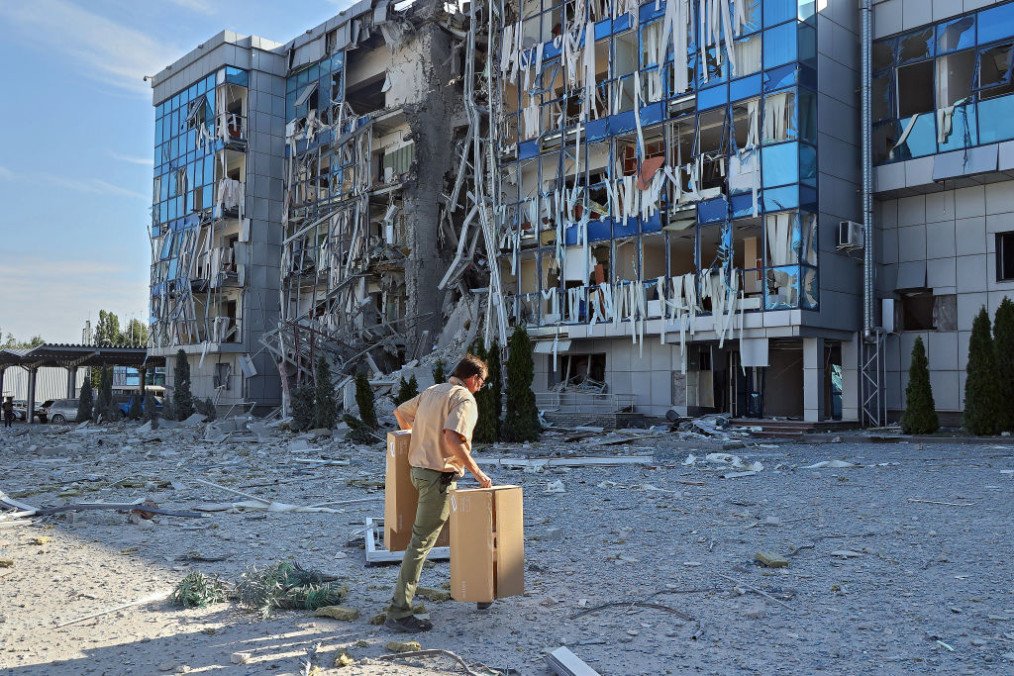On July 24, Russia launched a cluster “Iskander” missile at Kharkiv, marking the first use of this modified munition in the war. The attack targeted an industrial facility, causing injuries to at least 9 people and damaging a Swiss NGO office.
“Today at 5 a.m. the Russians hit the office of the Swiss Fund for Mine Action FSD with a ballistic missile,” according to the head of the Kharkiv Regional Military Administration of Kharkiv Regional Administration Oleh Syniehubov.

In their second attack in the afternoon the following day, Russian forces used a “double-tap” strike on an industrial site in Kharkiv, according to Volodymyr Tymoshko, head of the National Police in Kharkiv Oblast.
“These are missiles manufactured in 2024. At 5 a.m., the strike was on a completely civilian object, then two strikes on an industrial object in Kharkiv, within an hour the same object was hit with a cluster munition.”
Tymoshko highlighted the deliberate targeting of rescue and police personnel. “We are absolutely sure that the second time they fired a cluster munition to hit the rescuers and the policemen who were there. It is a miracle that both the rescuers and the policemen left this object 10 minutes before the second strike,” he stated.
Syniehubov confirmed the use of the cluster projectile, emphasizing that the enemy targeted units of the State Emergency Service and the National Police. “The enemy is targeting units of the State Emergency Service, the National Police, and those who are traveling to eliminate the consequences.”

Additionally, Tymoshko noted that fragments of the weapons found on the scene indicated that the missiles were manufactured in 2024. He also described the cluster munitions' impact, saying they injured people passing by the private enterprise and those in the nearby residential areas.
Russian army has increasingly employed “double-tap” strikes, where a second attack follows shortly after the first to target first responders. This tactic has resulted in the deaths of nearly 30 rescue workers in Odesa, Kharkiv, and Zaporizhzhia, and injured over 20 in March and April of 2024 alone.
-ba02b3bc86f0b624f99115809a6a34d0.jpg)


-c439b7bd9030ecf9d5a4287dc361ba31.jpg)

-111f0e5095e02c02446ffed57bfb0ab1.jpeg)


